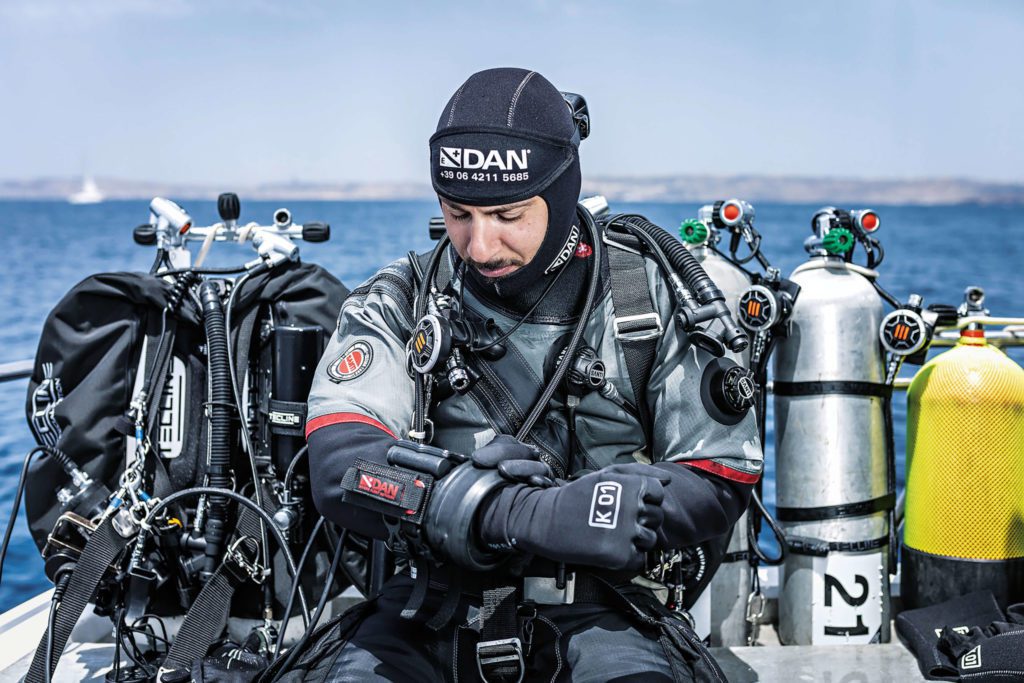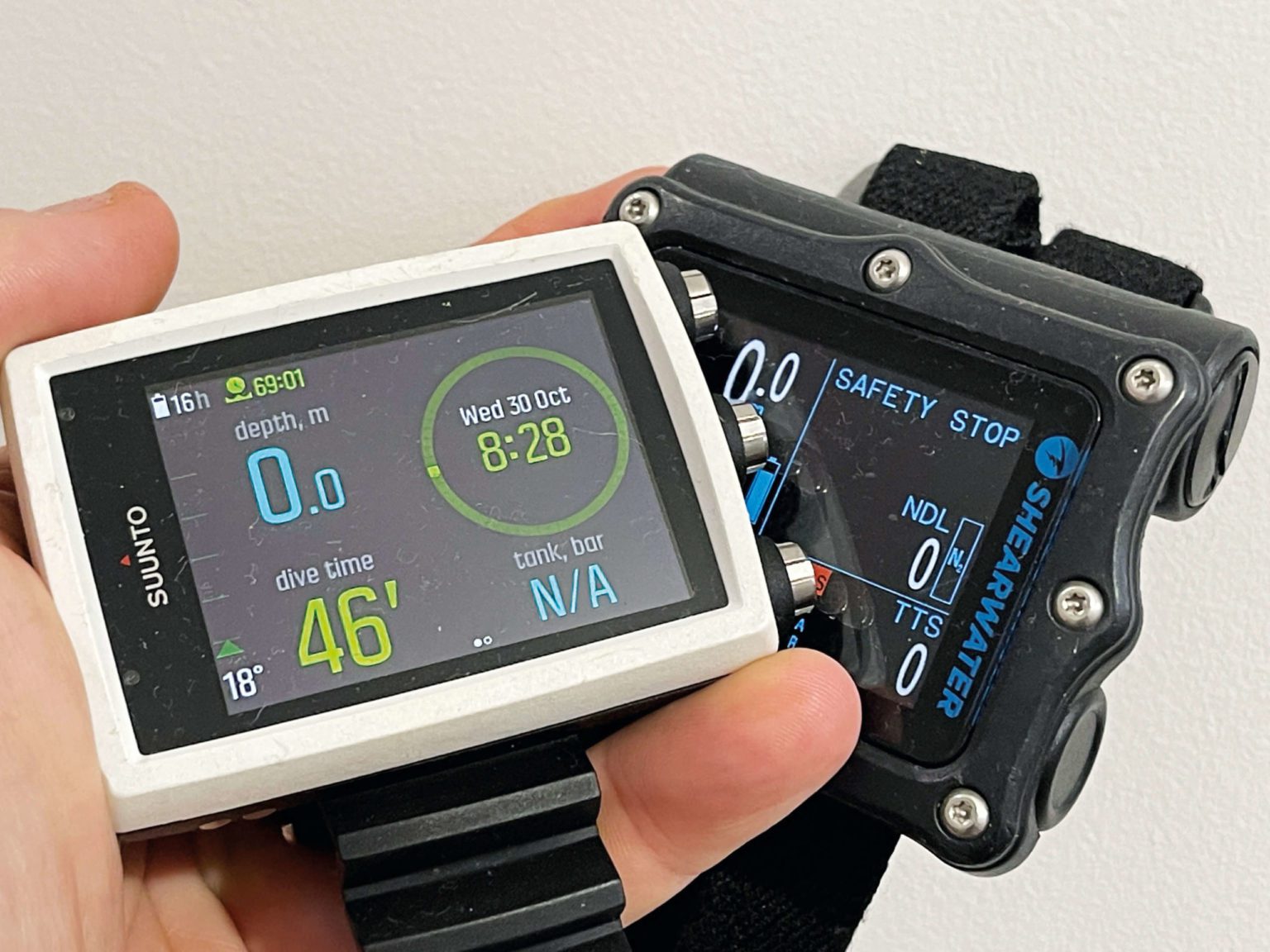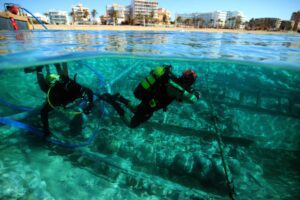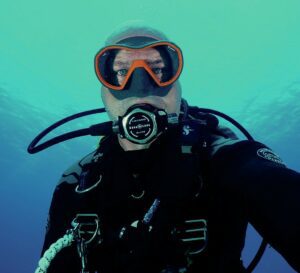Scuba diving is a highly gear-dependent activity, but like divers themselves, dive gear ages. It can even become obsolete, as gear is replaced by newer models with improved features and safety. Michael Menduno looks at when should you consider replacing expensive items like your dive computer or BCD.
So the big question is ‘when should you replace your dive computer or BCD’? The answer is ‘it depends’.
Computer love
Divers don’t buy new dive computers every year, so it is not uncommon to see older computers while on dive trips. But just because those models were the best options 15 years ago doesn’t mean they’re ideal to use now. New technology has improved computer processing power, battery life, sensor sensitivity and display screens.
Older dive computers are often not able to fully implement newer decompression algorithms; modern computers are more powerful and, in many cases, are better able to compute a more-faithful rendition of the underlying algorithm. Modern sensors can detect even slight changes in pressure and register changes in water temperature in a tenth of the time it takes those in older dive computers. This improvement provides more accurate estimates of water temperature, depth and ascent rate, although the dive computer’s physical design can affect these measurements — and measuring depth to the nearest inch of seawater may not have any practical impact on safety.
Many manufacturers will factory test dive computers for accuracy, so DAN Europe recommends that divers contact the manufacturer of any dive computer that is ten years old or older, or that has made 1,000 or more dives, and ask if it should be tested for accuracy. Years of diving can take their toll on computers in terms of wear and tear, exposure to sun and salt water, being dropped and other neglect.
As our dive computers steadily age, so do we. Many newer dive computers have sharper screens that are brighter, have larger numbers and are more intuitive to use than older models – hint, hint – worthwhile reasons to add a new dive computer to our wish list.

B-C-D, easy as 1-2-3
A comfortable and good-fitting BCD can give us years of reliable service. Do a few scuff marks or a broken clasp or two signal the end of its usefulness? Not necessarily. Does a BCD have an expiration date?
We rely on our BCD to ensure we have both a comfortable and a safe dive; a BCD failure could have very dire consequences when we most need to control our buoyancy, so we need to monitor the BCD’s condition as well as its age. In general, we might provide a cursory inspection of our BCD before and perhaps after use, but rarely do we consider getting them serviced.
Before using your BCD, especially when using it for the first time in many months, inspect the condition of the inflator hose, check the materials for degradation, fully inflate and inspect the seams for leaks and dump valves for function, and look for any significant scuffing or tearing. The inflator and dump valves need to be serviced periodically, especially as the BCD ages. Annual inspections are a good standard of practice, especially for BCDs in use for five years or more.
While BCDs don’t have an explicit shelf life, it is important to carefully and regularly monitor their condition, particularly their working parts. If the hose is sound with no signs of cracking, there are no leaks, buoyancy control is good and you service the inflator and dump valves annually after the first five years of use, then you should still have a reliable BCD. A good service technician will alert you of any embrittlement of the plastic parts, O-rings, cracks in the hoses or excessive wear and tear. Keep an eye out for leaks and cracks, especially if your BCD is more than ten years old. If fashion or function doesn’t prompt you to retire your old BCD, just be sure you stay alert for any warning signs that its functionality, and consequently your safety, may be compromised.
Dive computers and BCDs are expensive, which can make it very tempting to keep using the ones we own year after year. But don't be complacent. Use your own good judgment and that of your service technician to determine when it's time to replace your old BCD or dive computer.
You can see more content from Dan Europe from their regular column, or check out the DAN website for more information about medical advice and diver insurance.
About the author
AlertDiver.eu contributing editor Michael Menduno is an award-winning journalist and technologist who has written about diving and diving technology for decades. He coined the term ‘technical diving’. His work has appeared in magazines such as Alert Diver, DeeperBlue.com, DIVER, Quest, Scientific American, Sport Diver, Undercurrent, Undersea Journal, WIRED and X-Ray. He founded and served as editor-in-chief for aquaCORPS Journal (1990-1996), which helped usher tech diving into the mainstream of sports diving. He also produced the first Tek, EuroTek and AsiaTek conferences. In addition, Michael serves as the editor-in-chief of InDepth, the Global Underwater Explorers (GUE) online magazine.








